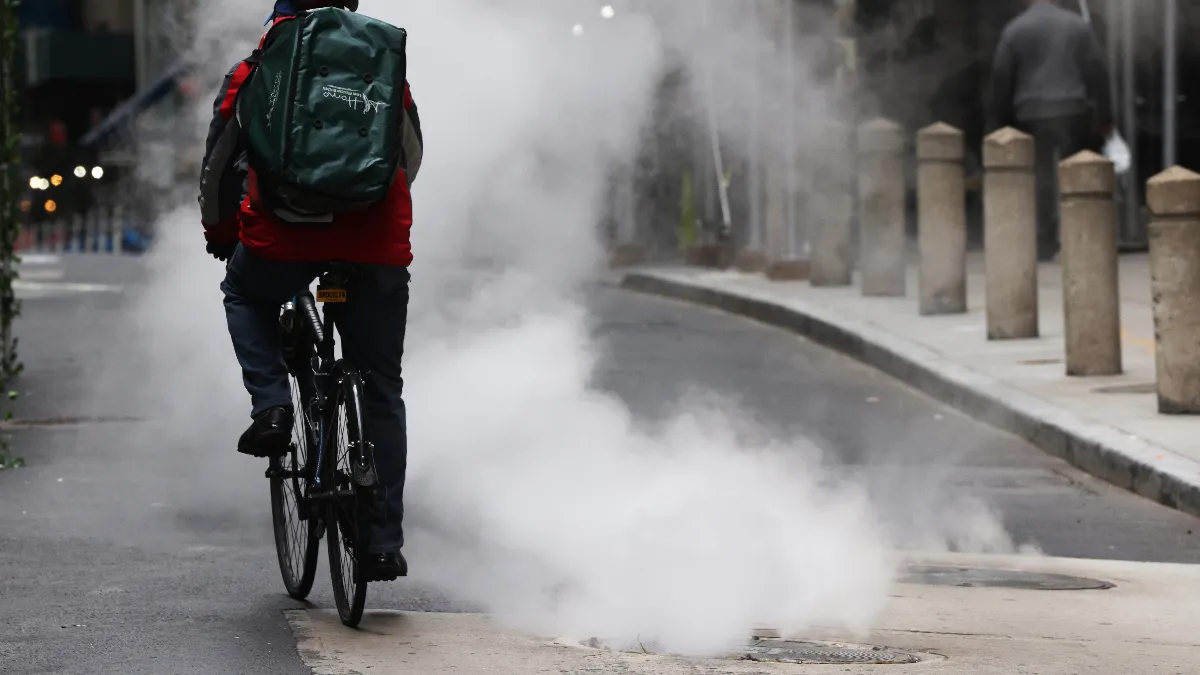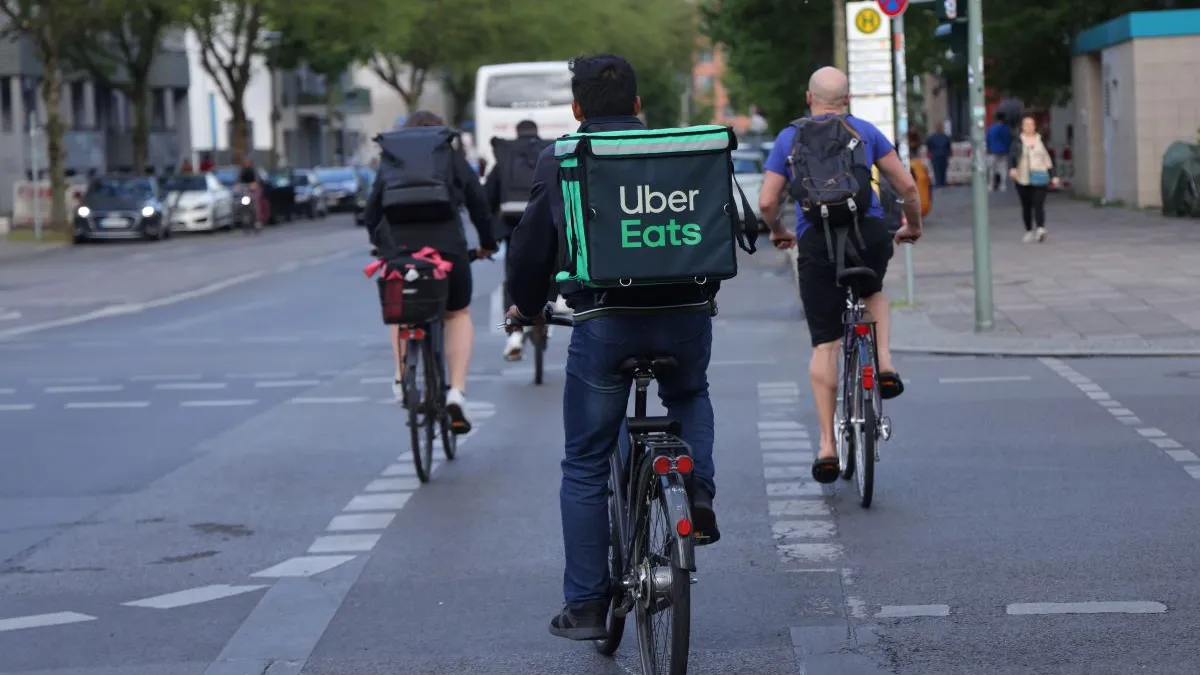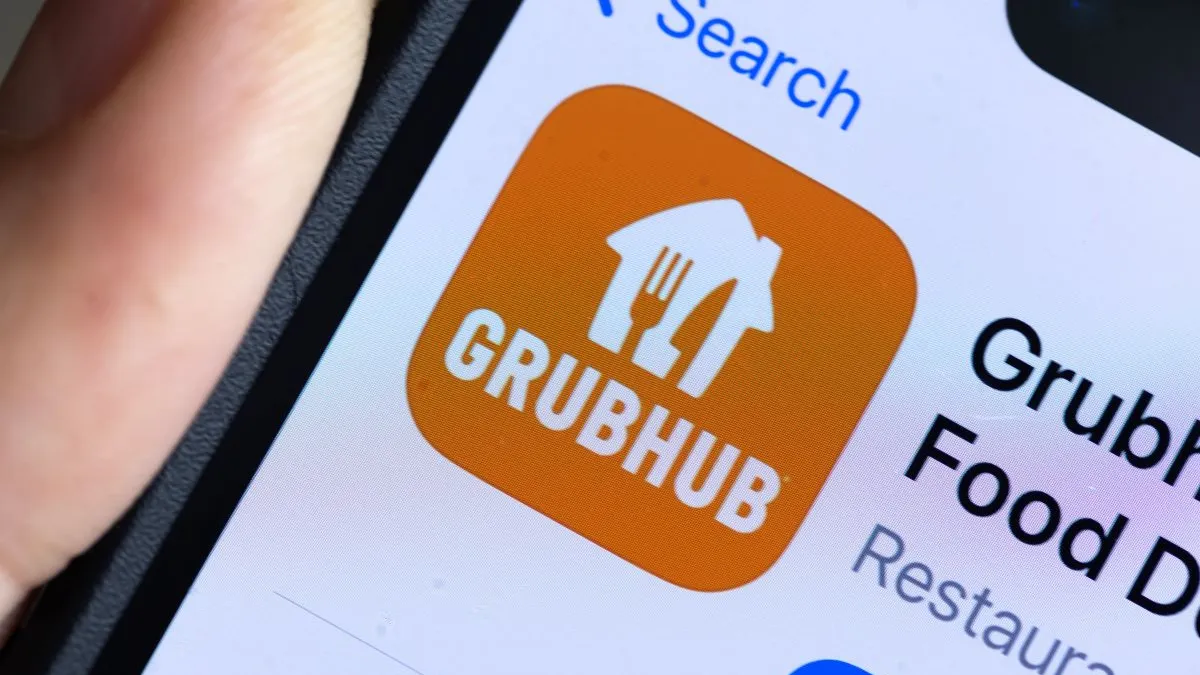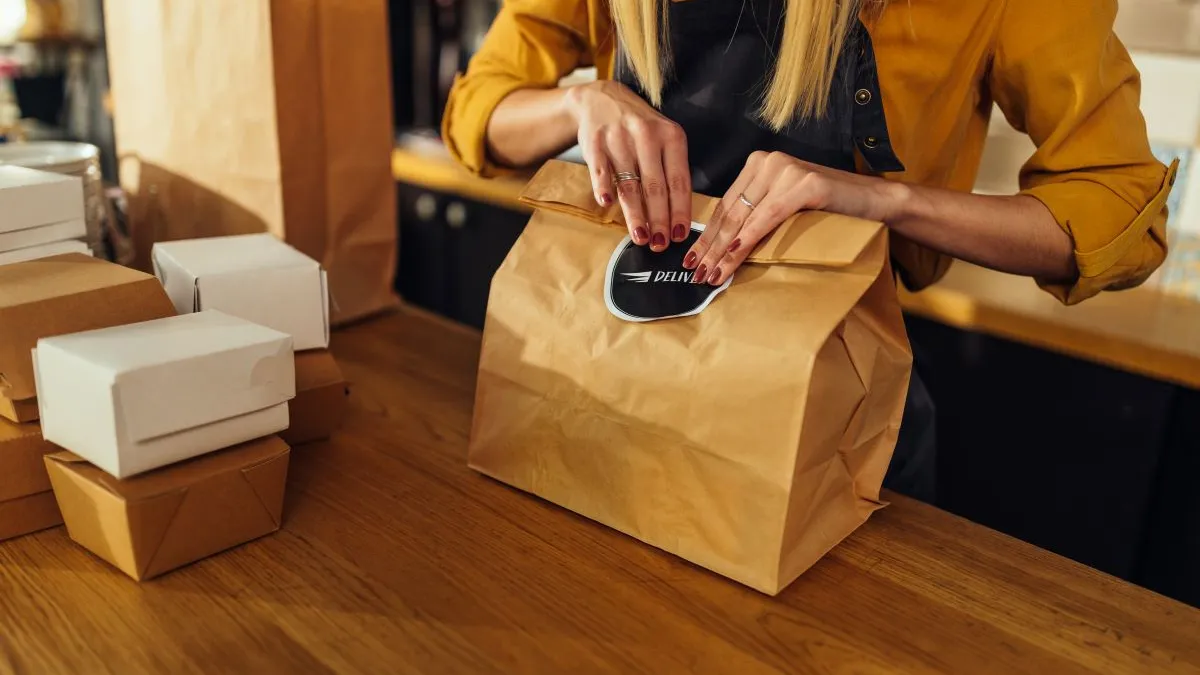The New York City Council passed six bills on Thursday related to delivery worker rights. They await Mayor Bill de Blasio's signature.
The bills, which include a requirement that restaurants allow couriers to use their restrooms and a mandate for a study to look into what delivery workers should be paid, are some of the broadest sweeping protections for delivery workers passed by a city in the U.S.
The legislative package comes after Los Deliveristas Unidos, a labor organization of immigrant couriers in New York City, demanded better treatment in the wake of long hours during the pandemic and poor treatment from restaurants and apps.
New York City has ramped up regulatory oversight of third-party delivery companies over the past few years, passing a series of laws in July to regulate food delivery operations. That series of bills included prohibiting delivery companies from charging restaurants for listing phone orders that didn't result in a transaction and barring non-partner listings. Its passage of a permanent delivery fee cap of 15% in August, however, has received pushback from aggregators, who have since sued the city. DoorDash has also sued New York City over a new law that requires third-party marketplaces to share customer information with restaurants.
Delivery companies support the bills despite risk of increased delivery costs
The pandemic accelerated the use of delivery apps when dining rooms closed. Restaurants, consumers and apps had to rely on delivery drivers to keep the industry afloat. Delivery drivers have also faced an increase in violence, carjackings and car thefts during the pandemic. Many couriers often endure extreme weather, including Hurricane Ida, to complete deliveries.
"We stood in solidarity with the Deliveristas as the City Council passed sweeping legislation giving them justice and protections, including the right to use bathrooms at restaurants," Andrew Rigie, executive director of the NYC Hospitality Alliance, said in an emailed statement. "The restaurant industry and third-party delivery workers must continue to fight together to ensure that billion dollar third-party delivery companies can no longer exploit our city's small businesses and workers."
Even though the bills don't directly address the increase in violence toward delivery workers, they give couriers more control over working conditions.
The legislative package includes the following bills:
- A requirement that restaurants allow couriers to use their restrooms
- A prohibition against apps soliciting a tip from a customer unless they clearly disclose how much of that tip actually goes to the driver
- A mandate that the Department of Consumer and Worker Protection conduct a study on what delivery workers should be paid based on their total income, expenses, required equipment, safety conditions and other factors
- A requirement that apps do not charge workers to receive payment of their wages and that wages are received at least once per week
- A mandate that food apps allow workers to set a maximum distance per trip that they will travel, including parameters they can set around bridges and tunnels
- A requirement that apps provide workers who have completed at least six deliveries for the company with insulated bags free of charge
While all of these bills will help improve worker conditions, the one addressing worker pay could have the most significant impact. Once the study on pay is completed, the DCWP will establish minimum payments required for these workers. If that minimum is higher than what workers receive on average currently, the cost of delivery could rise to make up the difference. The passage of Prop 22 in California, which added various employment benefits while keeping delivery drivers classified as independent contractors, led to all of the delivery companies adding service fees to pay for these new benefits, according to Forbes.
According to DoorDash, its Dashers typically earn over $25 per hour on delivery and tend to work about four hours each week. In Manhattan, the average hourly rate is about $33. But a study by the Worker Institute at Cornell University found differences in the calculation of hours worked mean take home pay is closer to $12.40 an hour, including tips, for most delivery workers.
DoorDash is concerned a few of New York City's bills could decrease service access to customers, the company said in an email. The bill that allows workers to set delivery parameters could impact underserved areas, hurting those who rely on DoorDash for access to food and other essentials, the platform said. While DoorDash supported the restroom access bill, it was changed late in the process, without the company's input, to require delivery companies to include a provision in contracts requiring restaurants to provide couriers with bathroom access. Previously, the bill required restaurants to allow bathroom access. DoorDash is concerned this change could impact restaurant compliance.
Despite potential impact on their operations and initial concerns, delivery companies have been supportive of these bills.
"These bills are common sense steps to support the delivery workers who work hard every day for New York's restaurants and residents," a Grubhub spokesperson said in an email. "Ensuring they receive a living wage and have access to restrooms isn't just a good idea — it's the right thing to do."
DoorDash said it increased its efforts to protect workers soon after issues were raised about safety late last year. That initiative included adding an emergency assistance button to its app this year in case Dashers require emergency services. The company also improved navigation options for Dashers on bikes, provided free and discounted road safety equipment for couriers that deliver via bike or scooter, and it supports safer streets. DoorDash also worked with about 200 restaurant locations to expand access to restrooms for Dashers whenever they are picking up orders.
"We recognize the unique challenges facing delivery workers in New York City and share the goal of identifying policies that will help Dashers and workers like them," a DoorDash spokesperson said in an email. "We will continue to work with all stakeholders, including the City Council, to identify ways to support all delivery workers in New York City without unintended consequences."






















